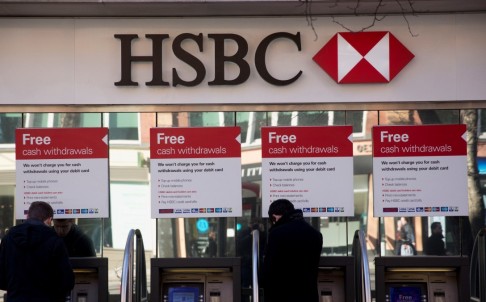Britain's Daily Telegraph accused of 'fraud' over HSBC saga
Daily Telegraph writer quit saying curbing coverage amounted to 'fraud on its readers'
PUBLISHED : Sunday, 22 February, 2015, 6:29am
UPDATED : Sunday, 22 February, 2015, 6:29am
Reuters in London

Britain's Daily Telegraph accused of 'fraud' over HSBC saga
One of Britain's most celebrated newspapers has been accused of self-censoring for commercial gain, raising awkward questions about a centuries-old press culture which has prided itself on its no-holds-barred approach to truth telling.
The 160-year-old Daily Telegraph, Britain's biggest-selling broadsheet newspaper, strongly denied accusations in a resignation letter by one of its best known writers, who said the paper had soft-pedalled coverage of the HSBC banking scandal to curry favour with the advertiser.
Britain's press is proud of its independence, able to make or break a political reputation with a merciless approach.
In his letter, Peter Oborne, the Telegraph's chief political commentator, said the paper had curbed coverage of reports that the Swiss arm of HSBC helped clients avoid taxes. The paper, he wrote, wanted to keep the bank's advertising.
"(It) amounts to a form of fraud on its readers," he wrote. "If major newspapers allow corporations to influence their content for fear of losing advertising revenue, democracy itself is in peril."
The Telegraph denied it had pulled punches in covering HSBC, saying it had "no apologies" for journalism guided by a pro-business editorial line.
"We are proud to be the champion of British business and enterprise," it wrote in an editorial.
"In an age of cheap populism and corrosive cynicism about wealth-creating businesses, we have defended British industries including the financial services industry that accounts for almost a tenth of the UK economy, sustains two million jobs and provides around one in every eight pounds the Exchequer raises in tax."
It also lashed out at rival news sources that had criticised it: "None is the paragon of moral or journalistic virtue that their criticisms this week might suggest," it said. "All have their own self-serving agendas, both political and commercial."
In Oborne's resignation letter, he lamented what he described as a loss of standards, saying stories were chosen for the number of online visits they bring rather than the news value. The paper had recently run a story about a woman with three breasts, he complained.
" Telegraph readers are a pretty loyal bunch but in terms of the paper's status I think it will cause enormous, long-lasting damage," Steven Barnett, communications professor at the University of Westminster, said.
